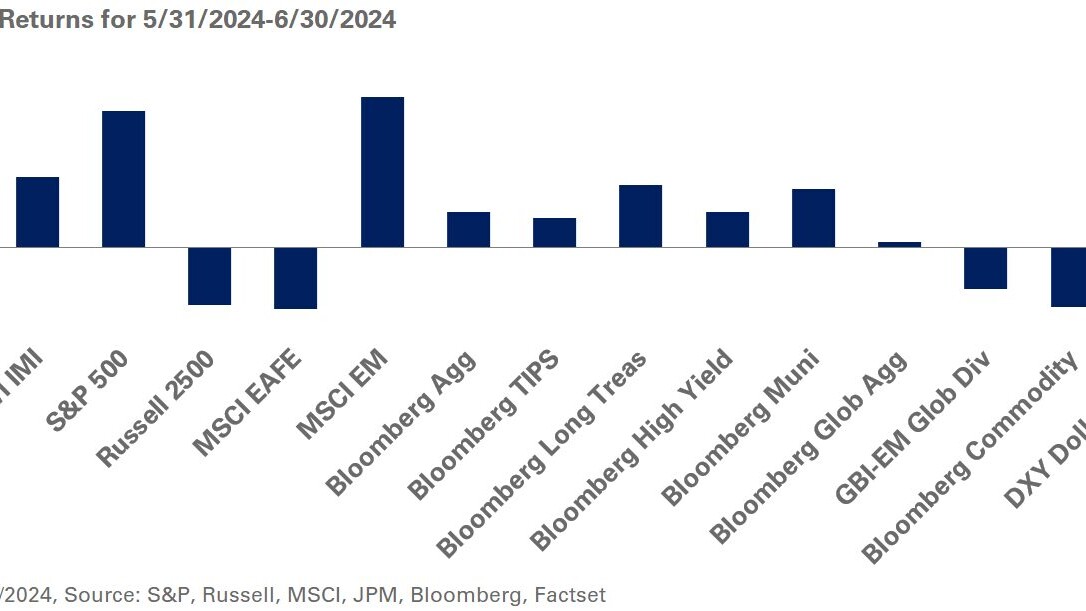People across the globe have seen some dark days since the new decade began. The COVID-19 pandemic, in particular, has resulted in record unemployment, company failures, and global economic slowdowns—and the impacts are not yet entirely clear.
Just as communities were beginning their journey to recovery and normalcy, repercussions of community outcries over racial inequalities throughout the U.S. have unleashed a new set of uncertain circumstances.
In Part 5 of our webinar series on the market impacts of COVID-19, I spoke with George H. Walker, Chairman and Chief Executive Officer of Neuberger Berman about the current climate. It was a pleasure to get Mr. Walker’s perspectives on navigating the markets during these volatile and turbulent times. Here’s a recap of what we discussed:
Why portfolios aren’t the only thing that should be diversified
In finance and investment portfolios, diversification is crucial; it means ensuring that your money is spread out in different asset classes—like stocks, bonds, and mutual funds—to mitigate risk.
But diversity is also critical when it comes to the success of decision making in workplaces. Recent events have shown that the U.S. has a long way to go in achieving equality for all.
In fact, we often see this in financial services, as many minorities are grossly underrepresented in the industry. Of more than $71 trillion in available global assets under management (AUM), only 1.1% is managed by firms owned by women or minorities.
During our conversation, we addressed how both Neuberger Berman and NEPC plan to better implement diversity efforts at our respective firms. As for NEPC, we’re committed to figuring out how to further our efforts and move forward in a consistent way over time.
COVID-19 and the rise of remote work
COVID-19 has made remote working a necessity, not a luxury. Many are now questioning if it’s necessary to go back to an office full-time at all.
Just last year, Neuberger Berman had an unexpected trial run for remote working after flooding caused a power outage at its headquarters. While the issue only lasted a week, it served as a great test of preparedness for this year’s extended remote working reality.
Walker expressed that remote working has helped his firm become more productive and develop closer relationships with clients and co-workers.
“I think we all have been surprised at how seamless the transition has been…in many respects, we feel closer to our clients today than we did beforehand,” he explained.
Other benefits of remote work are improved productivity, higher employee retention, and less absenteeism.
Of course, some employees still prefer building relationships face-to-face. Others feel more productive in the office because it’s easier to obtain assistance. Walker explained that Neuberger Berman is working on a plan to reopen safely and on the best ways to aid employees who travel for their jobs.
The firm will start by having volunteers come back in waves in June, with a more official return- to-office timeline beginning in September.
Most importantly, employees who have pre-existing conditions like immune or respiratory issues won’t need to come back to the office for the rest of the year.
“We might go back to rotating teams or the like. It won’t be a jump back to January behavior,” Walker said.
Investing in China
One area Walker and his team at Neuberger Berman are watching is investment opportunities in China. Walker’s team saw a decrease in Chinese cash inflows to the firm recently, but as COVID-19 restrictions start to ease, inflows are increasing.
BlackRock and Neuberger Berman were among the first firms invited to apply for domestic Chinese mutual fund licenses. Walker says his company is committed to building relationships in China, despite current US-Chinese tensions.
“The tension between the U.S. and China is unfortunate. As a human being, I believe many of the world’s great problems have a far better chance of being solved if we can find common ground or work together on them,” Walker said.
His team will help Chinese investors manage assets both within and outside of China. The firm will also consult non-Chinese investors on the mainland’s investment strategies. The opportunities in Chinese markets are primarily in the fixed-income sectors that are vastly underrepresented in non-Chinese portfolios.
Asset management going forward
Active management will always play an essential role for Neuberger Berman, especially because, according to Walker, its managers have done quite well in equities during this period. This won’t stop the increased capital to passive investing strategies. Some investors are choosing passive investments, like index funds, due to low fee structures.
However, investors should look beyond just the fee structure when comparing investments. Walker notes that there are many variables behind successful investing, which is why it could make sense to consider both active and passive strategies.
Due to the popularity of passive investing and fintech, Walker says fees will be compressed. Financial services professionals need to articulate the many ways they can provide value to their clients. They also need to walk the fine line between offering affordable services and remaining profitable.
As he explained, “We exist to serve clients and to help them achieve their investment objectives. We welcome the conversation about fees. But it’s a fairly efficient market out there.
I’m hopeful that some good can come out of these very, very dark days.”
For more insights from Walker on the state of the markets, listen to the complete webinar recording here.



